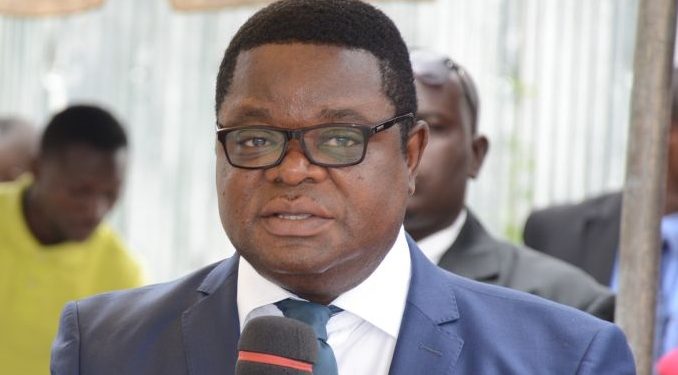|
Getting your Trinity Audio player ready...
|
The director of the Institute of Statistical, Social and Economic Research (ISSER) at the University of Ghana, Prof. Peter Quartey is worried that Ghana’s debt levels may pose a challenge to its move for an International Monetary Fund (IMF) support.
The Ministry of Finance on Monday announced that the IMF delegation is currently undertaking a comprehensive debt sustainability analysis of the country.
Acknowledging that the IMF has various support schemes the country could benefit from, the Professor of Economics is disturbed the country’s unsustainable debt levels raise more concerns.
“For IMF, they require that you have a sustainable debt level or a medium-term plan to ensure that, your debt levels become sustainable. They have been sounding this warning, but Ghana’s debt sustainability threshold is not good.”
The Ministry of Finance has confirmed that its officials and that of the Bank of Ghana have commenced a comprehensive debt sustainability analysis with the IMF for a $3 billion support programme.
A statement from the ministry said: “the Government of Ghana is putting together a comprehensive post-Covid-19 economic programme which will form the basis for the IMF negotiations.”
“The programme seeks to establish a macro-fiscal path that ensures debt sustainability and macroeconomic stability, underpinned by key structural reforms and social protection.”
The ministry added that it is “optimistic about making progress in our discussions.”
“Government remains committed, and shall continue to actively engage all stakeholders, both public and private, in a clear and transparent manner as we seek to fast-track this process.”
But, Prof. Peter Quartey fears, “we are at a risk of debt distress as anything above 60 percent raises a red flag. Currently, we have hit the threshold, so going in for borrowing will be tough for us”, he said on Eyewitness News.
An IMF team is in Ghana until October 7 to continue discussions with the government on policies and reforms that could be supported by a lending arrangement.
The meeting with the IMF comes amid concerns that Ghana is about to start talks with domestic bondholders on a restructuring of its local-currency debt.
News reports indicate that major local investors, including local banks and pension funds, are preparing to engage in discussion on debt reorganisation.
This could entail the extension of maturities and haircuts on principal and interest payments.
Ghana’s debt-service costs in the first half amounted to GH¢20.5 billion, equivalent to 68 percent of tax revenue.
Source: Citi News Room





![[VIDEO] Ghana confirms two cases of Coronavirus](https://www.dailymailgh.com/wp-content/uploads/2020/03/coronavirus-ghana-airport-100x70.jpg)